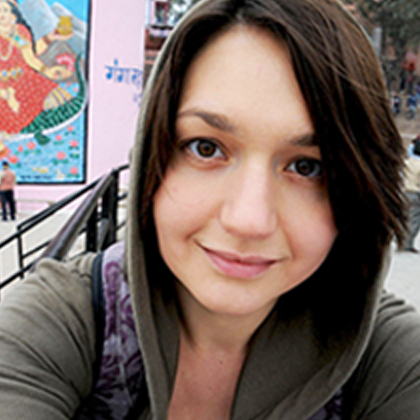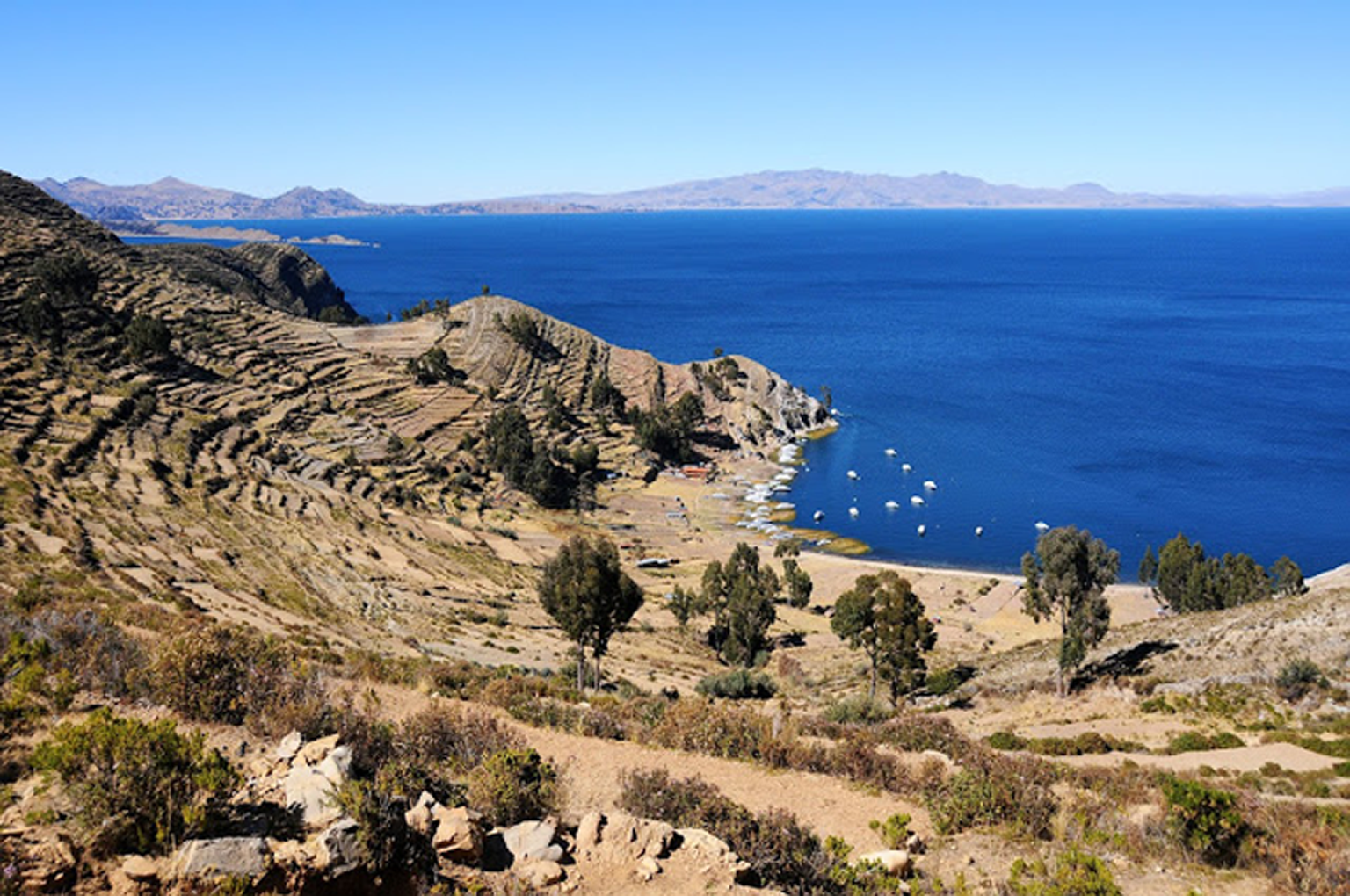- Posted by:
- anjci
- Under:
- Eurovision
Not many of us will recall that the first Eurovision Song Contest was held in Switzerland in 1956. With a few breaks here and there, this year’s European singing extravaganza celebrated its 60th anniversary.
The show has swirled endlessly around Europe (and beyond), only to end up relatively near where it started, in Vienna. Austria won the right to host the 2015 contest following Conchita Wurst’s last year’s storming victory with Rise Like a Phoenix. It was Austria’s only second experience as a Eurovision host: the previous one was as long ago as 1967.
Eurovision 2015 is unlikely to be remembered for flawless organisation. Three countries were cut off during the voting, and connection was at times painfully slow. One would think Austria was still using the 1967 technology! The introduction of three female presenters – a first for Eurovision –hardly paid off either. The trio visibly lacked in dynamism and struggled to keep the commentary flowing. Conchita Wurst tried to save the day hosting the artists’ area backstage but was given unforgivingly little air time – a far cry from her last year’s triumph on the stage.
Not surprised, mate
Musically, this year’s contest featured relatively few surprises. Perhaps the only one was the participation of Australia as a special guest to mark the show’s jubilee. Unbelievably so, the Eurovision Song Contest has a strong following in Australia, as well as an added advantage of being a late-morning family entertainment programme thanks to the time difference. If Australia had won, it would have been allowed to participate again on a condition that the contest would be held in a European city of their choice. Perhaps luckily, Australia did not have to make any difficult choices in the end, finishing fifth with its catchy Tonight Again performed by Guy Sebastian.
On a less surprising note and as predicted by the bookies for months, Sweden’s Måns Zelmerlöw went home triumphant after his energetic Heroes scored an astonishing 365 points. Russia’s Polina Gagarina came second with 303 points (the first time a runner-up crossed the 300-point mark) and Italy’s Il Volo was third with 292 points. Måns’ victory was Sweden’s sixth in the history of Eurovision and meant that Sweden became the first country to win twice in the 21st century. While Ireland upholds its Eurovision title having won seven times – more than any other country to date – Sweden’s victorious streak means that this may not hold out for long.
Controversy remains
The show did not go by without controversy. Final results for every country are determined by a combination of the audience’s telephone votes and national juries made up (at least allegedly so) of music professionals. The jury vote was originally introduced to reduce the political bias of the voting. However, jury results are often subjective and some Eurovision fans believe that their opinions should be given less (if any) weight, as the two can differ dramatically. This year too, Sweden would have come third solely on the basis of televoting. Italy would have won – handy for a country which has not come first in Eurovision since 1990.
One could not but feel sympathy for Russia whose Polina Gagarina received widespread booing whenever the country was awarded top points. Following a similar situation last year, the Eurovision organisers deployed an anti-booing technology, blocking out the boos with pre-recorded cheering and applause. Unfortunately Eurovision still struggles to be an apolitical event and boos for Russia could be well heard, at some point reducing the singer to tears.
One participant that deserved little sympathy, however, was the UK. Represented by a duo called Electro Velvet, the country scored a meagre five points and finished fourth last. While the second anglophone nation, Ireland, failed to qualify altogether, Australia’s success proved that speaking English as a mother tongue need not go hand in hand with inability to sing. Perhaps the UK’s utter inability to make friends in Europe is to blame.
In comparison with the 2014 finals which featured only three non-English songs, 2015 saw a slight revival of national heritage: France, Italy, Montenegro and Spain performed entirely in their respective languages while Romania mixed theirs with English. Overall though, the situation still looked bleak – as did poor translations into English of some contestants’ songs. Many had won their national selections in local languages and should have arguably stuck with those.
On, on to nominations
The most daring dress award indisputably goes to Latvia’s Aminata who donned a massive red frock to perform her Love Injected. It must have helped – the singer went on to sing twice her petit size, finishing sixth and earning Latvia its best result since 2005.
This year’s contest dominated by unadventurous ballads, Israel’s Nadav Guedj admittedly had little competition to score my favourite lyric of the night. “And before I leave let me show you Tel Aviv” he sang cheerfully to music echoing klezmer influences, leaving no doubts about his ethnic background and scoring Israel a place in the Top 10. At 16, Nadav is among the youngest participants the adult version of Eurovision has ever seen. I was not surprised he kept calling for his “mama” throughout his otherwise cheerful number, Golden Boy.
The best-distraction-from-music award undoubtedly goes to Lithuania. Halfway through their otherwise unmemorable song, the country’s Monika Linkyte and Vaidas Baumila briefly pressed their lips together. And if a heterosexual kiss on stage wasn’t enough, the background dancers swapped partners for a same-sex version of the same. Whoever said Lithuania was a conservative country?
The too-much-effort award goes to Armenia which as much as formed a 6-member supergroup for the sole purpose of this year’s Eurovision. The members had been assembled from five different continents to represent the Armenian diaspora scattered around the world following the unfortunate events of 1915. The song’s original name Don’t Deny was deemed too political by the organisers and eventually changed to Face the Shadow. The resulting imitation of Andrew Lloyd Webber did not win many hearts, finishing 16th.
Finally, I must award Austria with the best-Coldplay-sound of the night (yes, most contests feature more than one). This will arguably be the only award the Makemakes will receive this year, as the Austrian entry officially became the only host country ever and, along with Germany, the first country since 2003 to score nil points at Eurovision. The fact that the Makemakes used to warm up Bon Jovi in the past is likely to remain the highlight of their musical career.
And so it is off to Sweden again
Lastly, I cannot help but applaud Sweden for its abundant Eurovision talent. Predictable references to ABBA aside, the 2015 Eurovision Song Contest finals featured not one but four songs composed by Swedish songwriters, two of which – Russia and Sweden proper – made the Top 2. While this is nothing compared to 10 Swedish-written songs in 2012, it is still a substantial achievement. A country with such rich musical tradition certainly deserves a sixth chance to host the contest – and, unlike many other participant nations, being able to afford it.












Giannina says:
August 9, 2018 at 8:51 pm
Italy doesn’t want to win. I think…We can’t do a show like that…Really… Look at our television shows! They are terrible, with a lot of pauses and wasted time. Eurovision is perfectly organized and smoothy!
anjci says:
August 10, 2018 at 10:54 am
Italy rocked my Eurovision world in 2017 : ) “Occidentali’s Karma” was freakin’ amazing – such a shame it had run out of breath by the time of the contest and did not come first! The 2015 Eurovision was excellent in its own right though. I was absolutely convinced that Russia would win, but the actual winning entry was heaps better. I do believe that “Heroes” is the top Eurovision winner of the past decade. In addition, Latvia (my home country!) absolutely shone with Aminata, and Israel put forward an excellent entry with “Golden Boy” – a far, far cry from Israel’s most recent performance… sorry!
Comments are closed.